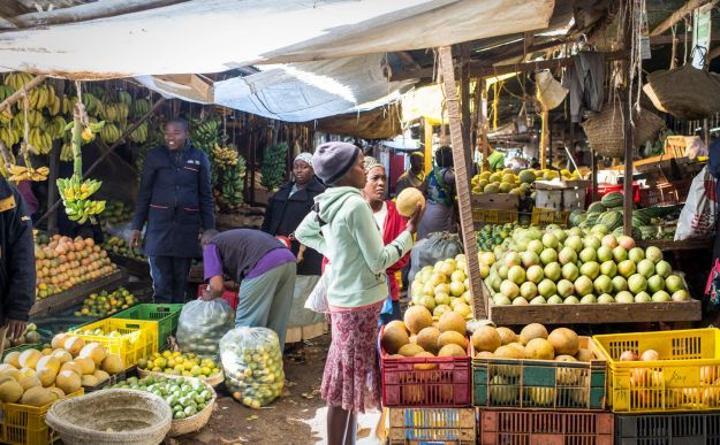Africa-Press – Kenya. Invasive pests are becoming a big threat to the production and export of fresh produce experts have said.
The aforementioned effect has now pushed experts to start a project aimed at improving the market access for pawpaw, mango, avocado and citrus fruits.
Prof Theophilus Mutui, the Kenya Plant Health Inspectorate Services (Kephis) managing director said trade in mango, avocado, pawpaw, and citrus within the East African Community (EAC) region, EU and China at the import and export levels have been on an increase.
He spoke at Kephis headquarters in Nairobi on Thursday during the launch of the project titled Managing scale insects in fresh fruits in East Africa to enhance market access.
“But its success is dependent on tackling a range of crop pests and diseases. Regional pest risks to production and trade include scale insects that are not only damaging to crops but also other plant host species,” he said.
Kenya is among three countries in East Africa that are set to benefit from a Sh138 million three-year project that seeks to increase compliance with sanitary and phytosanitary (SPS) requirements for pawpaw, mango, avocado and citrus fruits.
This will be done through improved surveillance and management of scale insect pests.
These include the false yellow scale (Pseudaulacaspis cockerelli), snout scale (Fiorinia proboscidaria) and black parlatoria scale (Parlatoria ziziphin).
The project is funded by the Standards and Trade Development Facility (STDF) and will be implemented in Kenya, Uganda and Burundi by the Centre for Biosciences International (CABI) in partnership with Kephis, the Kenya Agricultural and Livestock Research Organisation (Kalro), the National Museums of Kenya and the Fresh Produce Exporters Association of Kenya (FPEAK).
Mutui said small insects, specifically adult females, typically have soft bodies, sometimes no limbs, and may be concealed on the underside of plants meaning they often go unnoticed or are misdiagnosed as a disease.
“They attack by inserting their tiny, straw-like mouthparts into the bark, fruit, or leaves. The pests attack important crops and plants that are integral to the countries’ economies and in some cases have been known to cause devastating crop yield losses of up to 91 per cent,” he said.
In Eastern Africa, introduced mealybug pests, for example, include Papaya mealybug (Paracoccus marginatus) which impacts cultivation and yields of pawpaw, cassava, vegetables and other alternative hosts such as Citriculus mealybug (Pseudococcus cryptus) on citrus and fruit tree mealybug (Rastrococcus invadens).
Mutui said the project will help improve market access for Kenya’s produce and will also help inform and educate farmers on how to mitigate scale insects.
“The programme will also cover East Africa hence the opportunity to collaborate with our counterparts in the region in mitigating the pest,” he said.
“Part of the project will involve training agricultural extension staff and plant protection officers on the identification of scale insects and communicating their risks and how they can be managed with smallholder farmers.”
Dr Marylucy Oronje, a scientist in charge of sanitary and phytosanitary at CABI’s regional centre for Africa in Nairobi said agriculture is a mainstay of the East African economy employing up to 80 per cent of its people and accounting for around 25 per cent of the GDP.
She said the expansion of the sector and its ability to improve livelihoods and food security is impeded by sanitary and phytosanitary systems that need improving – particularly in respect of scale insects and their impact upon pawpaw, mango, avocado, and citrus.
“This project in partnership will aim to strengthen the capacity of Kenya, Uganda and Burundi to monitor and mitigate these risks before export to increase intra-regional trade and export to more favourable global markets,” Oronje said.
Daniel Karanja, Deputy Director, Development- CABI Africa said East African fresh fruits farmers have in the recent past faced challenges in accessing export markets mainly in the European Union, USA, and Middle East due to pests and diseases.
“Export of fresh fruits contributes greatly to the economic growth of eastern African countries. However, the growth of this sector is curtailed by the presence of quarantine pests in exported produce. There is an increase in rejections at exit points due to the presence of scale insects,” Karanja said.
He added that the project will increase compliance with phytosanitary requirements for target horticultural products.
“This will be through improved surveillance and management of scale insect pests thus leading to improved production and market access for fresh fruits,” he said.
(Edited by Tabnacha O)
For More News And Analysis About Kenya Follow Africa-Press






